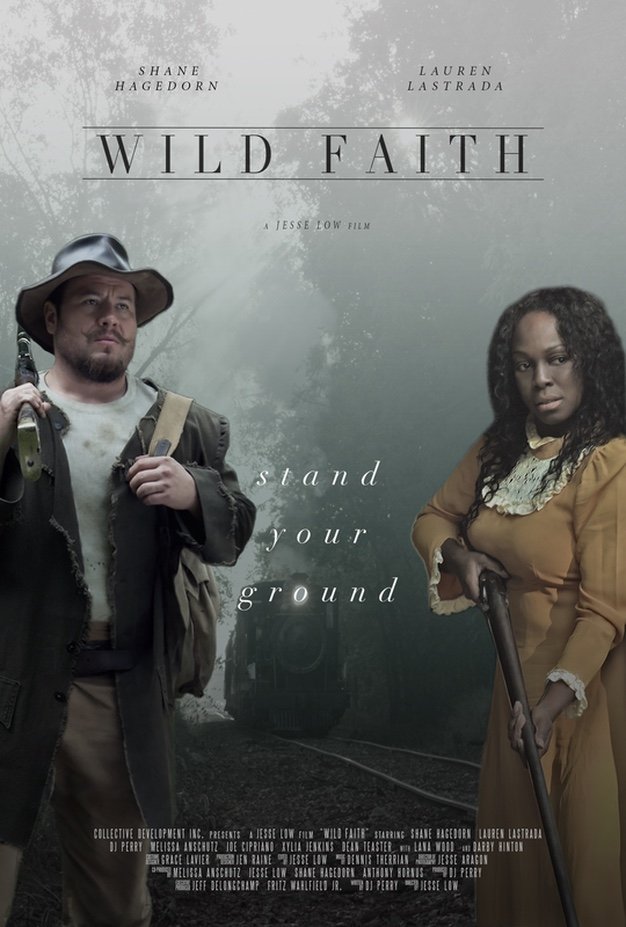A renegotiated NAFTA that doesn’t protect them might as well bring back Napster.
by Ron Maxwell
(Reposted With Permission From Spectator.org)
As the director of several movies about American history, including Gettysburg, it has been a privilege to bring these stories — full of bravery, resilience, ingenuity, conflict and sacrifice — to the big screen for audiences around the world. The stories that creatives tell — some true, some pure imagination — are among the greatest of American exports. Not only do they inspire audiences in this country, they also tell America’s story to the rest of the world. To my knowledge, there is no more powerful American export.
Right now, the U.S. is engaged in a trade negotiation with Canada and Mexico that will define the protections for creative people for decades to come. The North American Free Trade Agreement (NAFTA), originally signed in 1994, is up for renegotiation and President Trump has made no secret of his dislike for it. He rightfully criticized previous administrations’ trade agreements, most recently the Trans Pacific Partnership (TPP). Thankfully, that agreement was never ratified, and will hopefully end up in the dustbin of history. Even Trump’s detractors admit he has an unerring instinct for what harms the American worker and what helps.
One of the reasons TPP was such a bad deal for America was its watered-down intellectual property and copyright protections. It was an agreement with 12 countries that was negotiated over seven years, and many of those countries had little to no existing copyright framework to begin with. But TPP wasn’t a bad deal by accident. Silicon Valley’s most powerful and unregulated companies did all they could to weaken protections for the people in my industry, which as we all know, is also a form of art. Some very bad art. Some very good art. But art nonetheless — which is central to any people’s culture.
Before we go further, let’s pause to talk about the people who create this art form — the men and women who are the life-blood of the Entertainment Industry. I’ve spent decades on the sets of various films, and have seen firsthand the amazing work done by those behind the camera in the film and television industry. These hardworking individuals live all over this country. I’ve shot films in California, Florida, Georgia, Maryland, Pennsylvania, Arizona, Alaska, Tennessee, Virginia, New York, New Jersey, Illinois, Rhode Island and West Virginia. Audiences see only the movie stars. What is unseen are just the sort of Americans Donald Trump championed during the election. They are the reason I’m able to get up and go to work every morning; their decency, grit, knowhow and work ethic are second to none.
Filmmaking is a team effort, a truly collaborative endeavor, requiring a synthesis of highly skilled crafts. Even though we take advantage of cutting-edge technologies, the process itself isn’t far removed from how movies were made at the dawn of cinema, more than a century ago. It’s hands on. It’s precision piece-work. We actually make things. We create property as surely as someone else makes a car or builds a house. We don’t allow other people to steal cars or move into houses without buying them or paying rent.
So not to put too fine a point on it: the more our industry grows, the more high-quality, middle-class jobs will be created around the country. We’ve spent a good deal of time talking about the loss of jobs in manufacturing, coal, and retail in America. Many of those jobs are never coming back. But the American film and television industry is thriving, and the better we protect this industry, the more jobs it will create. These jobs are well-paying — and include health benefits and reasonable protections given the manual labor they require.
NAFTA must protect the rights of these hard-working Americans — and copyright laws support millions of them. Eighty-four percent of entertainment businesses are small companies with fewer than 10 employees. These family- owned businesses employ truck drivers, editors, production assistants, writers, caterers, make-up artists — all relying on copyright to keep their doors open.
So why, you might be asking, are we not protecting these workers? And why would Silicon Valley be fighting to weaken protections here and abroad?
Until President Trump was elected, we had an administration that was truly intoxicated by the allure and excitement of Silicon Valley — which, on its face, was understandable, given that it’s another American industry that has truly transformed the world. But there are several ways in which they have changed our lives that have not been ideal, and our previous President seemed unaware or unconcerned with those problems.
Almost since the dawn of the internet, and certainly with the adoption of widespread residential broadband internet, anything that creative people make could be digitized and monetized on the internet. Everything from journalism, to photography, to music, to film and television, to gaming, and beyond. But what made this change so dramatic was that suddenly the internet platforms were making money off this content rather than the people who created it.
YouTube is now the largest music and video streaming site in the world, but most of the content on which its size, strength, and market capitalization was built was created by someone else. Facebook has become the primary way through which people get their news, but the billions in advertising that it makes from those news posts will never be returned to the journalists and publishers who invested the time and money into that reporting.
These platforms are fighting to preserve this status quo, which has allowed them to become the largest monopolies in the world, in their wake leaving creative people struggling more and more to survive. This is why their armies of lobbyists are descending on Mexico for the next round of NAFTA talks this week.
Silicon Valley is laser-focused on diluting the copyright language in the treaty and is arguing for broad and unchecked “safe harbors” — from copyright infringement as well as all other illegal activity perpetrated on their platforms. Why in the world do they deserve immunity from the same responsibilities everyone else must shoulder? If someone gets hurt on one of my movie sets, the producers are legally responsible. We are liable. What makes
these platforms so different?
They have argued for their own brand of exceptionalism for the past 20 years. The argument is that they are still a nascent industry that mustn’t be burdened with the same rules that govern civil society in the U.S. They further argue that they are a force for good in the world, and that technology and innovation are somehow inherently good.
In the late nineties, there were two pieces of legislation that passed Congress — essentially giving Silicon Valley exactly what they wanted. Those Bills, the Communications Decency Act (CDA) and the Digital Millennium Copyright Act (DMCA), passed in 1996 and 1998 respectively, before much of the commercial internet existed.
The two laws collectively provided these young companies “safe harbor” — provisions that indemnified them from their users’ actions. The DMCA specifically indemnified internet companies when their platforms host copyright infringing material, creating what is known as the notice and takedown system. This puts the onus on the copyright holder to notify the platforms for every instance of copyright infringement. Without it, the platforms would have faced countless lawsuits given their central role in facilitating the infringement.
What started out as a helping hand to a new industry turned into one the largest transfers of corporate wealth in
U.S. history — from content creators to platform owners. It was like a slow-moving bank heist, and it was enormously successful. Under this policy structure, piracy has skyrocketed and everyone from individual filmmakers and songwriters to large corporations have no way to keep up with it. Google alone receives 900,000,000 takedown notices every year from our industry.
Now, Google and its allies are demanding that a watered-down version of the DMCA, a system that barely works in our country, make its way into NAFTA. Further, they are seeking to broaden their safe harbor on copyright into every other sector of illegal activity — language that would mirror that from the 1996 CDA.
At the same time, Google and its lobbyists are opposing efforts to ensure NAFTA provides for “secondary liability” for platforms that enable piracy. This is a settled part of U.S. law — and is the reason that websites like Napster and Grokster no longer exist. Without this being included in the treaty, there is no check on the enormous safe harbor provisions that they’re fighting to include. It would mean that creatives have no legal way to stop a site like Napster from springing up in Mexico and delivering pirate videos to the entire world. It would further mean that we’re a signatory to a treaty that would actually erode U.S. copyright protections further. Why would we do that?
As a director, I know how many people work on just one movie. How they are up early every morning, returning home late every night. They do the job because they love it, because it’s inspiring, and because they can be fairly compensated. As soon as a movie is illegally sold or placed online to attract eyeballs for something else, every dollar lost to piracy is a dollar that does not go back to the people who worked on it or to the entrepreneurs who risked their capital to finance it. It’s a moral outrage — and I don’t believe we should sit by and stand for it any longer. The platforms that are stealing the proceeds from our creative work are not exceptional because they’re new and innovative. Sadly, they’re exceptional because they enjoy blanket protections that allow them to steal with impunity from our fellow citizens who rely for their livelihoods on the Entertainment Industry.
No industry should be above the law, especially when the industry is comprised of the largest monopolies in the world. They rose to their stature and size largely off the backs of content they neither created nor paid for. It’s time for that to change, and a good start would be with NAFTA.
I humbly urge our representatives currently negotiating NAFTA to defend strong copyright protections and include secondary liability for these platforms. Do it for the millions of middle-class Americans whose livelihoods depend upon it. Do it so that American filmmakers can continue the long, great tradition of telling the stories of our people, our history, our country.
Wikimedia Commons
Questions or comments? Please write to us here.



 - Content:
- Content: 
 – Content:
– Content: 
